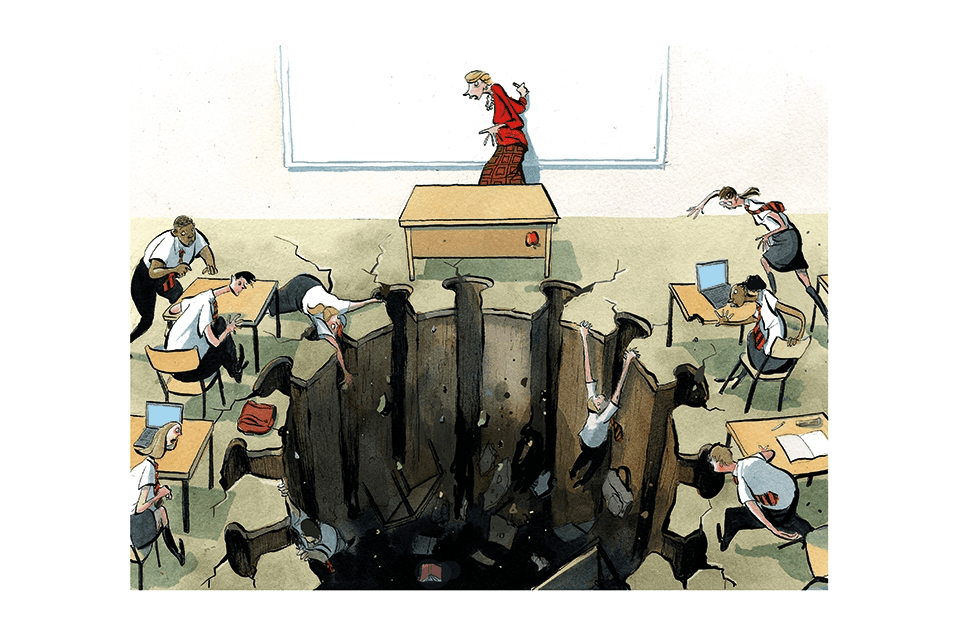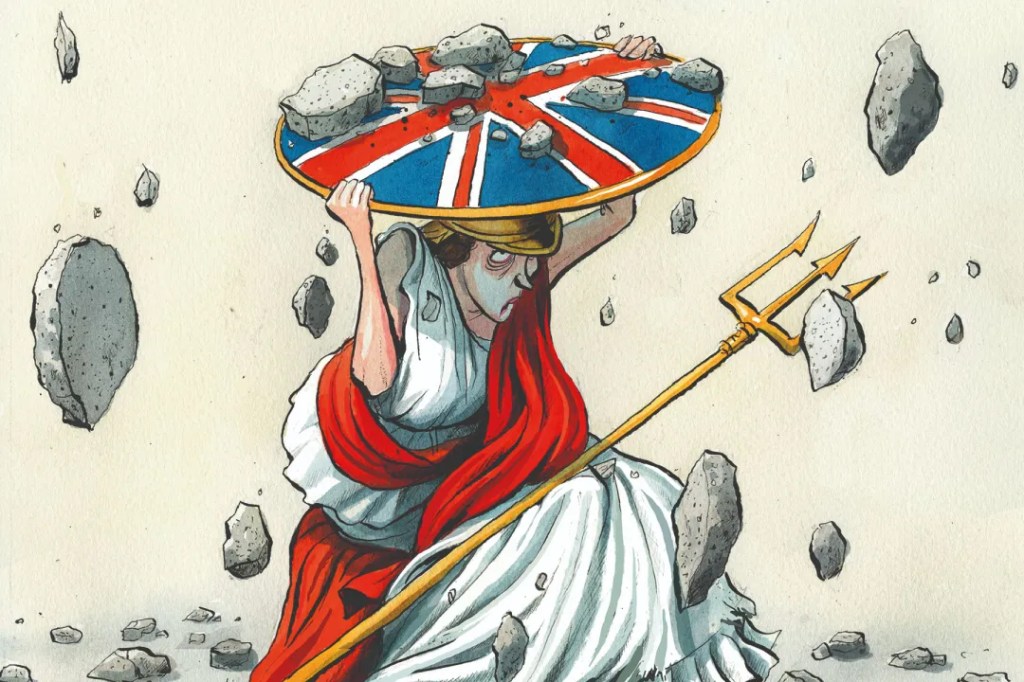Children who started school in the early days of the pandemic will have worse exam results well into the next decade. That’s according to a study released this morning by the London School of Economics, the University of Exeter and the University of Strathclyde. Researchers predict that 60 per cent of pupils will achieve worse than a grade five in their English and Maths GSCEs in 2030, considerably more than the numbers achieving poor marks today.
The study, which looked at the effect of school closures on childhood development, is the first to look at both ‘cognitive’ skills as well as ‘socio-emotional’ skills, finding the latter to be just as important. The highest 20 per cent performing pupils in cognitive tests at 14 years old but who had average socio-emotional skills failed to attain five good GSCE’s including English and Maths.
‘Without a raft of equalising policies, the damaging legacy from COVID-19 school closures will be felt by generations of pupils’, said one of the report’s authors Professor Elliot Major. The results are hardly surprising given the persistent absence problems lockdowns left in their wake. Last spring, 140,000 children in England missed half or more of the school days they should have attended. Research by the Children’s Commissioner, published last year, found that only 5 per cent of these ‘severely absent’ kids go on to achieve five GCSEs. For year ten and 11 pupils who are persistently absent – meaning they miss one day of school a fortnight – just over a third get the minimum five GCSEs. For rarely absent children the figure is 78 per cent.
Today’s study goes further, predicting poor exam performance to last ‘well into the 2030s’. It also found that while most children experienced up to six months of lost learning on average, for poorer children an extra two months were lost. This attendance and attainment gap was already there, but Covid and lockdowns made it worse.
The authors also suggested that England’s pandemic response had focused too heavily on academic catch-up with less emphasis on the socio-emotional skills, extracurricular support and wellbeing that the study suggests are crucial to improving childhood outcomes. For teenage boys though, the study found that cognitive skills are twice as important as socio-emotional skills for determining exam prospects whilst the opposite is true for girls.
The report talks of a ‘double whammy’ for the Covid cohorts who are on course for ‘the biggest overall decline in basic GCSE achievement for at least two decades’ all whilst the attainment gap between rich and poor pupils continues to widen. Kids who were aged five when schools closed are up to 4.4 percentage points less likely to achieve good exam grades at GCSE whilst for girls it was nearly 5 percentage points.
Not only is this a tragedy for Britain’s kids – who missed out on key months of education for little if any public health benefit compared with countries like Sweden who managed to keep schools open and achieve better Covid outcomes than us – but it’s damaging our economy too. The education damaged Covid and closures have caused due to lower lifetime earnings from poorer exam results are estimated to cost the economy over £31 billion in today’s money all while harming income mobility too. Four years on from the first lockdown, much of life continues as normal but the kids certainly aren’t alright.








Comments